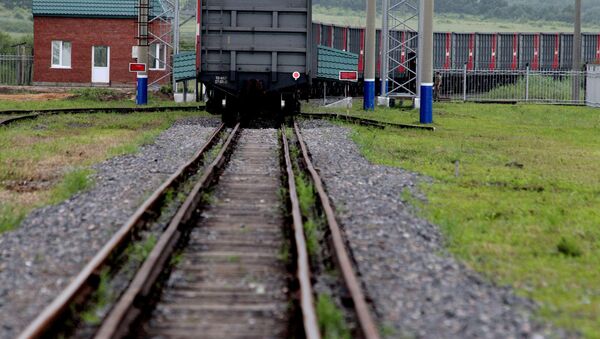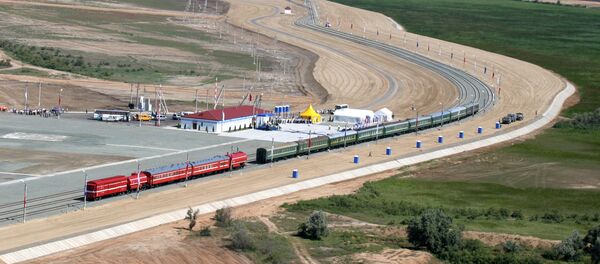"Just a few years ago we started transportation from China to Europe by Kazakhstan and Russia. We sent a few demonstration trains and now there are more than hundreds of thousands of containers that are on the way from China to Europe. Now even the Chinese provinces started the initiatives on getting connected to these corridors sending cargoes to Europe because everyone believes that this transit service works. And this has happened just over a few years. Every year the transportation volume is doubled from China to Europe via Russia," Tsydenov said at the Moscow conference on.
The official also expressed confidence that the same prospects of increase in transportation amounts exist for the North-South Corridor.
Iran and Azerbaijan are parties to the INSTC project based on 2002 agreement, which also involved Russia and India as well as some Central Asian and European countries. The project envisages construction of transport and infrastructure facilities along the shipping route from South-East Asia to Northern Europe through India, Iran, Azerbaijan and Russia.
INSTC was expanded to include new members, namely Azerbaijan, Armenia, Kazakhstan, Kyrgyzstan, Tajikistan, Turkey, Ukraine, Belarus, Oman and Syria. Bulgaria has an observer status.
The North-South Transport Corridor project aims to reduce the costs and the time of ship, rail and road deliveries between the countries located along the route.




